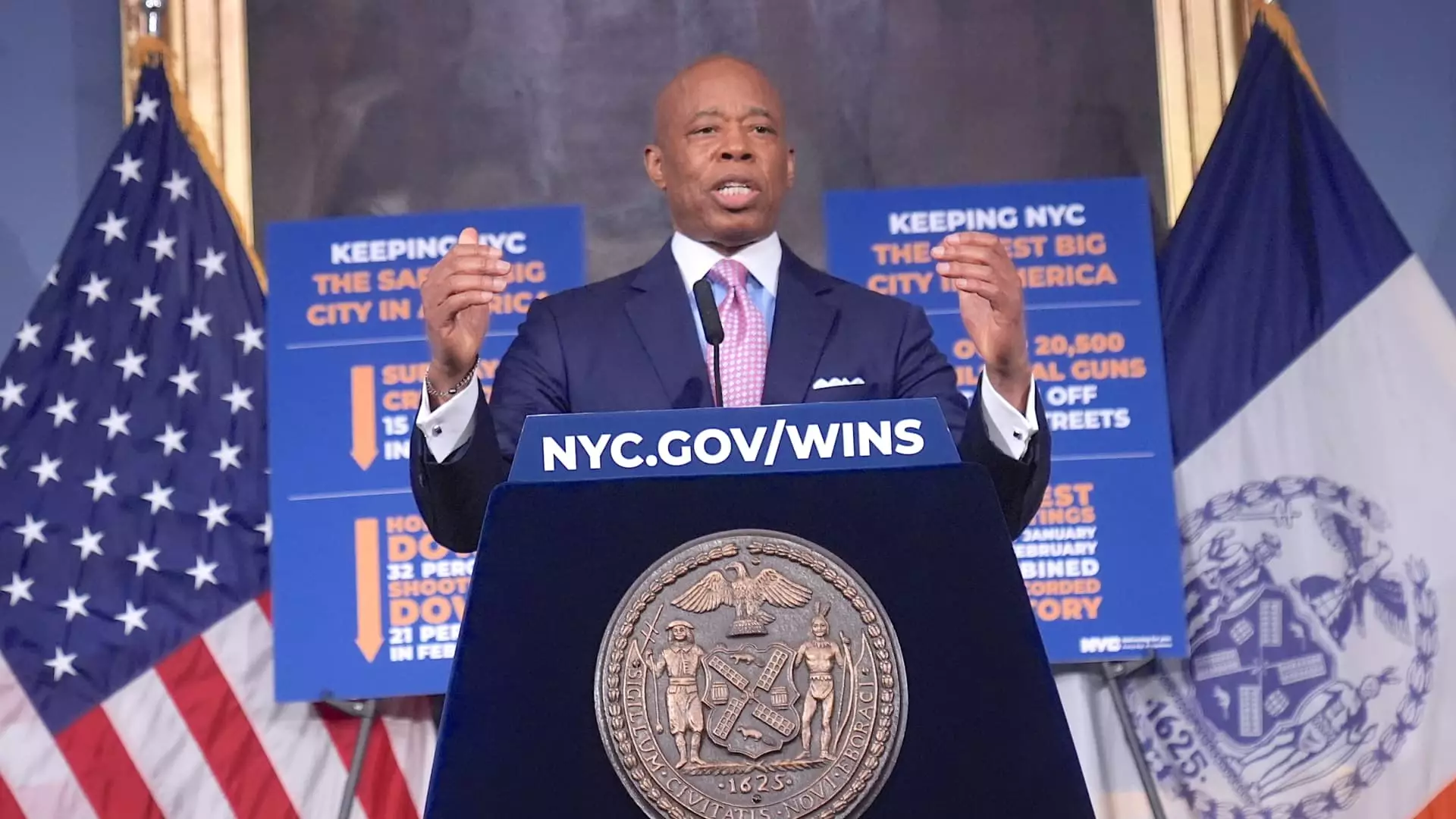New York City’s political landscape is as complex as its famous skyline, and Mayor Eric Adams’ recent decision to run for reelection as an independent candidate adds a significant layer of intrigue. This unorthodox move comes right on the heels of a legal reprieve—a federal judge dismissed corruption charges that could have otherwise shackled his campaign. The fact that these allegations were made public and led to an indictment in the first place raises fundamental questions about the political apparatus that swirls around Adams and the broader implications for New York City’s governance.
Adams’ statement that he “always put New York’s people before politics and party” seems to resonate with many disenchanted with the increasingly partisan nature of American politics. But can an independent claim to leadership truly be trusted in a landscape riddled with partisanship? Is this a genuine play for fairness, or merely a tactical maneuver to sidestep a primary battle within the Democratic Party that is fraught with inner factionalism?
Unpacking the Legal Outcomes
The dismissal of the bribery and wire fraud charges against Adams by U.S. District Judge Dale Ho highlights an essential aspect of American judicial proceedings—the influence they wield on political careers. Even though the ruling freed Adams from the shackles of these accusations, the stigma potentially attached to such charges lingers like an unwanted shadow. Adams candidly admitted to trusting the wrong people, allowing us a glimpse into the human aspect of political leadership. It’s a reminder that even in the echelons of power, vulnerability exists.
While the judge’s reasoning—that allowing the charges to stand could compromise the mayor’s ability to govern—may seem principled, it still raises eyebrows. One can’t help but wonder if this sets a precedent that grants political figures an almost untouchable aura, where legal troubles can become mere stepping stones rather than immediate deterrents. This brings into question the ethical integrity of leadership and the lengths to which politicians will go to secure their positions.
Aiming for an ‘Uninhibited’ Campaign
Adams’ desire to “mount a real independent campaign” because he feels “uninhibited” by the federal bribery case is a striking confession. It represents a pivot that could resonate with voters tired of traditional political constraints. The former NYPD captain aims to gather a “solid base of people” outside Manhattan, tapping into the dissatisfaction that many feel towards political elitism.
There’s something refreshing about a candidate willing to redefine his political identity, but this independent approach comes with its own set of challenges. Adams has a formidable task ahead of him. Nine Democrats, including high-profile figures like former Governor Andrew Cuomo, are already fighting for the Democratic ticket. The notion that he can appeal directly to all New Yorkers, bypassing traditional party loyalties, is a double-edged sword. Will he find sufficient traction among moderate voters craving a centrist approach, or will the strategy backfire, leaving him politically adrift?
Perceptual Disconnect: Trust and Leadership
Adams recognizes that the allegations may have undermined public trust, and rightly so. In his video address, he appeals to the electorate, seeking to regain confidence amidst a political narrative often dictated by skepticism and cynicism. However, the reality remains: can he truly convince voters that he is the authentic change they seek?
His statement about forgoing the Democratic primary while maintaining ties to the party could inadvertently foster ambiguity in his political stances. A politician dancing between party lines must tread carefully. Voter perception plays a critical role, and even a whiff of opportunism can sour public opinion. In a political climate rife with disillusionment, Adams must not only articulate his vision but also embody the trustworthy leader New Yorkers deserve.
Ultimately, Adams’ journey is emblematic of a broader tension within American politics. As the landscape evolves, will independent leadership pave the way for a new breed of political accountability, or will it merely perpetuate the cycles of distrust that define modern governance? How he navigates this moment could redefine not only his legacy but the very essence of New York City’s political future.


Leave a Reply